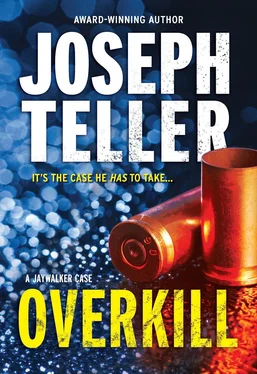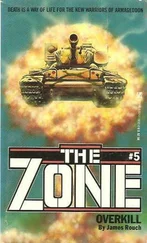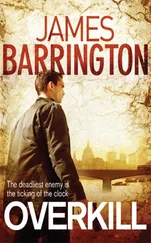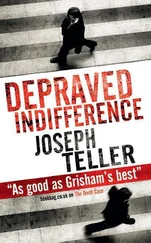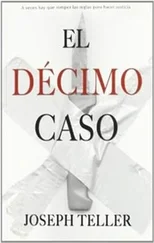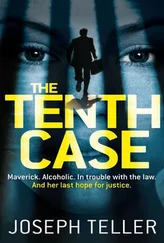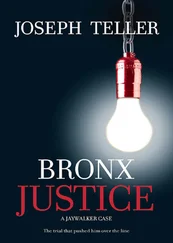Joseph Teller - Overkill
Здесь есть возможность читать онлайн «Joseph Teller - Overkill» — ознакомительный отрывок электронной книги совершенно бесплатно, а после прочтения отрывка купить полную версию. В некоторых случаях можно слушать аудио, скачать через торрент в формате fb2 и присутствует краткое содержание. Жанр: Криминальный детектив, на английском языке. Описание произведения, (предисловие) а так же отзывы посетителей доступны на портале библиотеки ЛибКат.
- Название:Overkill
- Автор:
- Жанр:
- Год:неизвестен
- ISBN:нет данных
- Рейтинг книги:3 / 5. Голосов: 1
-
Избранное:Добавить в избранное
- Отзывы:
-
Ваша оценка:
- 60
- 1
- 2
- 3
- 4
- 5
Overkill: краткое содержание, описание и аннотация
Предлагаем к чтению аннотацию, описание, краткое содержание или предисловие (зависит от того, что написал сам автор книги «Overkill»). Если вы не нашли необходимую информацию о книге — напишите в комментариях, мы постараемся отыскать её.
Overkill — читать онлайн ознакомительный отрывок
Ниже представлен текст книги, разбитый по страницам. Система сохранения места последней прочитанной страницы, позволяет с удобством читать онлайн бесплатно книгу «Overkill», без необходимости каждый раз заново искать на чём Вы остановились. Поставьте закладку, и сможете в любой момент перейти на страницу, на которой закончили чтение.
Интервал:
Закладка:
But Jaywalker did. Porter had simply been drawing on his own personal experience. Two young guys fighting to the death could mean only one thing to Wallace Porter: drugs. And drugs equalled money. So he’d simply embellished the tale with some details of his own. Why did Jaywalker see this so clearly? Because it was the kind of thing he himself did from time to time.
So if indeed it had been Jeremy who’d pulled the gun-and despite Jeremy’s denials, Jaywalker considered that a distinct possibility-Teresa Morales’s waistband version was much more likely than Wallace Porter’s sweat-sock story. Still, the contradiction was a major one, and there was no way the jurors could have missed it. And just in case they had, Jaywalker would hammer the point in his summation. So all things considered, Jaywalker felt he’d survived the testimony of the three eyewitnesses in pretty fair shape. Yet here was Harold Wexler telling him in so many words that he was dead in the water.
It’s often been said that because the prosecutor gets to sum up after the defense lawyer does, he or she has the last word in a trial. But Jaywalker knew that wasn’t really the case. Following the summations, it’s the judge who gets to speak last, often for an hour or more, while he charges the jury, lecturing them in detail on the various principles of law they’re required to follow during their deliberations and in arriving at a verdict. When Harold Wexler had warned Jaywalker up at the bench that Jeremy’s chances of being acquitted would vanish the moment the jury heard the charge on the limits of deadly force, he had a point. Even if the jurors were to remain as undecided as Jaywalker was on the issue of who’d begun the day with the gun, even if they felt Jeremy had been defending himself the first time he’d fired-or arguably the second or third time-once Victor had been lying helpless on the ground, there was no way that Jeremy’s shooting him a final time between the eyes could be deemed justified. Wexler intended to make that point to the jury, and to make it as loudly and clearly as he possibly could. His message to Jaywalker had been direct and to the point: you can talk about justification and extreme emotional disturbance all you want, but there’s no way you’re getting around that final shot, not in my courtroom.
And if you chose to combine Harold Wexler’s words with those of Katherine Darcy, uttered the very first time Jaywalker had met her, you had the case distilled right down to its essence. It was all about that stumble Victor had taken, that moment when he’d fallen to the ground and been reduced to begging for his life. That marked the precise instant when self-defense and sympathy ended, and the execution began.
He would talk to Jeremy tomorrow. Tonight he would sleep.
Or at least try to.
16
When Jaywalker went into the pens and talked with Jeremy before court the following morning, he found his client as resolute as ever.
“I think it’s going pretty well, Jay.”
Jaywalker tried to explain for the third time in fifteen minutes that no matter how well things seemed to be going, there was still the problem of the final point-blank shot between the eyes. The one that had been fired at a point when Victor had no longer posed a threat of any sort.
“I don’t remember it that way,” said Jeremy for the umpteenth time. “And I’d rather take my chances.”
Jaywalker had once listened to an interview with Bill Russell, a long-ago basketball star for the Boston Celtics. Asked about the prospects of some other team beating them in the championship series, Russell had said, “They got two chances. Slim and none.” Despite the fact that Jaywalker had been trying his best to explain that those words described their own chances of an acquittal to a T, the choice to continue the trial or not was still Jeremy’s. When it came to tactics and strategy, Jaywalker took over, never allowing a client to tell him how to try a case, lest the advice interfere with his winning it. But on the fundamental question of whether to take a plea or go to trial-or in this case, continue with a trial-that decision was the defendant’s, and the defendant’s alone. Jaywalker could and did give advice on the matter. He often weighed in heavily on one side or the other, with a good ninety percent of his recommendations being to cop-out. If he felt strongly enough-and Jaywalker had never been a stranger to strong feelings-he’d resort to arm-twisting and head-banging. But when he was done with the twisting and the banging, he’d move on and redirect his efforts to winning. Other lawyers he knew admitted to taking a measure of satisfaction from telling a client, “I told you so,” after losing a case. Jaywalker delighted in hearing those very same words from a client, after he’d won a case he’d called unwinnable. And hear those words he had. Not always, but a lot.
Though he knew he probably never would from Jeremy.
Katherine Darcy called Police Officer Joseph Campanella to the stand. Campanella had been the first officer to respond to the scene of the shooting. Checking his memo-book entries from time to time, he recalled how he’d found someone identified later as V. Quinones lying on the pavement in a semiconscious state, apparently the victim of multiple gunshot wounds. He’d also encountered a young woman named Teresa Morales, who’d been attempting to aid Mr. Quinones.
DARCY: You say “semiconscious.” Was he talking?
CAMPANELLA: No, ma’am. He was breathing, but he didn’t respond to any verbal requests I made of him. He wasn’t making any motions. His eyes were closed, and it was-it appeared as though he was sleeping.
Officer Campanella had called for an ambulance. While waiting for it to arrive, he’d done chest compressions on the victim, while someone else had performed mouth-to-mouth breathing. Then the ambulance had arrived and EMTs had placed the victim inside it. Miss Morales and Officer Campanella had also gotten in.
DARCY: What happened in the ambulance?
CAMPANELLA: They were rendering whatever aid they could give him.
DARCY: What was Mr. Quinones’s condition as time went on?
CAMPANELLA: It was progressively worsening.
DARCY: Tell us how.
CAMPANELLA: He never regained consciousness. He never spoke or opened his eyes. From what I observed, his vital signs were diminishing. He was becoming paler as the minutes were passing. And he was just generally deteriorating.
DARCY: What happened at the hospital?
CAMPANELLA: Shortly after our arrival, he was pronounced dead by the emergency room doctor.
Officer Campanella had completed some paperwork, checked in with his precinct commander, and then returned to East 113th Street to help secure the crime scene. Darcy asked him if he’d noticed any sort of evidence upon his return.
CAMPANELLA: Yes, I did. There was a sweatshirt. And if I’m not mistaken, there were two shell casings and two spent rounds lying on the walk-way. I’d also recovered another spent round in the ambulance.
DARCY: What was done with those items, if you know?
CAMPANELLA: They were all vouchered and removed as evidence.
DARCY: Were you able to draw any conclusions about the type of weapon or weapons that had been involved in the shooting?
CAMPANELLA: Only that there’d been an automatic involved.
Asked to clarify, he explained that while a revolver retained its spent shells in its cylinder after firing, an automatic or semiautomatic discharged each empty shell as it was fired. As for the “spent rounds” he’d referred to, those were the slugs or projectiles that were fired from the shells.
DARCY: Did you do something else in connection with this case several days later?
Читать дальшеИнтервал:
Закладка:
Похожие книги на «Overkill»
Представляем Вашему вниманию похожие книги на «Overkill» списком для выбора. Мы отобрали схожую по названию и смыслу литературу в надежде предоставить читателям больше вариантов отыскать новые, интересные, ещё непрочитанные произведения.
Обсуждение, отзывы о книге «Overkill» и просто собственные мнения читателей. Оставьте ваши комментарии, напишите, что Вы думаете о произведении, его смысле или главных героях. Укажите что конкретно понравилось, а что нет, и почему Вы так считаете.
